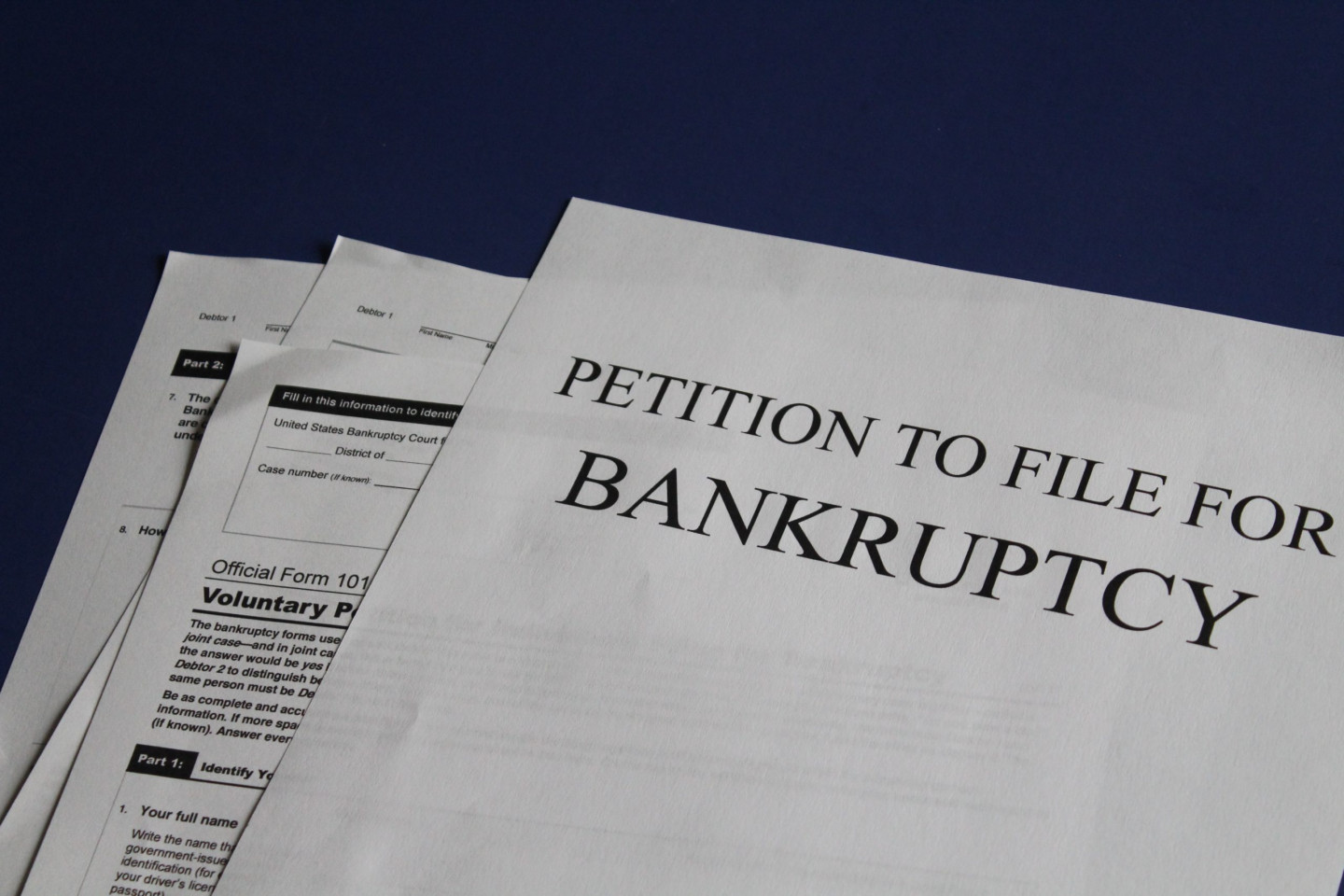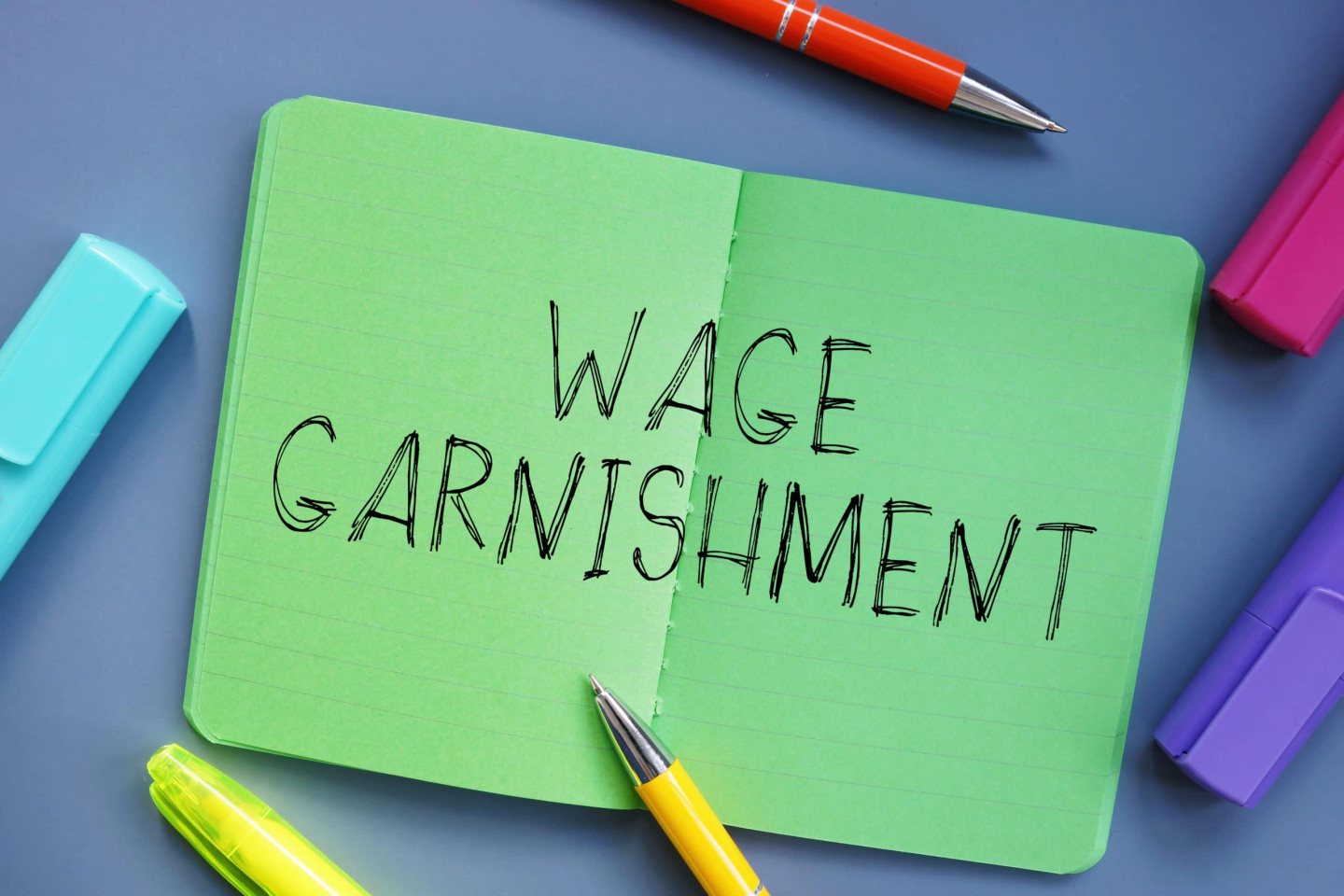Don't let financial challenges hold you back. Take the first step towards financial recovery by scheduling your free consultation with Joshua Reinert at Reinert and Reinert today!
Why File For Bankruptcy in Michigan?
These are many advantages to filing bankruptcy. We will look for the best options to fit your specific financial situation.
What Are Michigan Bankruptcy Exemptions?
The bankruptcy exemptions in Michigan are governed by state law. These exemptions determine which assets and property you can protect when filing for bankruptcy in the state of Michigan. It's important to note that exemption laws can change, so it's advisable to consult with a bankruptcy attorney or check the most recent Michigan bankruptcy exemption laws before filing.
DO EMPLOYERS HAVE TO NOTIFY EMPLOYEES OF WAGE GARNISHMENT IN MICHIGAN?
In Michigan, employers are generally required to notify employees of wage garnishment actions. Wage garnishment is a legal process in which a portion of an employee's wages is withheld by their employer and sent to a creditor to satisfy a debt, such as unpaid child support, taxes, or a court-ordered judgment.
Here are some key points to understand regarding wage garnishment notifications in Michigan:
- Garnishment Order: When a court issues a garnishment order, it is typically served on the employer. The garnishment order specifies the amount to be withheld from the employee's wages and the creditor to whom the funds should be sent.
- Notice to Employee: Once the employer receives the garnishment order, they are generally required to provide notice to the affected employee. The notice should inform the employee of the garnishment, the amount being withheld, the creditor's name, and the employee's rights.
- Employee Rights: Michigan law provides certain protections and rights to employees facing wage garnishment. These rights may include the ability to contest the garnishment order or request an exemption if the employee believes that withholding the requested amount would cause financial hardship.
- Exemptions: Certain types of income, such as Social Security benefits, unemployment compensation, and certain pensions, may be exempt from wage garnishment under federal law. Employees should be aware of their rights and exemptions when facing garnishment.
- Compliance with the Garnishment Order: Employers must comply with the garnishment order by withholding the specified amount from the employee's wages and remitting those funds to the appropriate creditor as directed by the order.
- Recordkeeping: Employers are also typically required to maintain accurate records of wage garnishments and related notifications, as failure to comply with the garnishment order can result in penalties.
It's important for both employers and employees to be aware of their obligations and rights when it comes to wage garnishment in Michigan. Employers should ensure that they follow the legal requirements for providing notice to employees and withholding the appropriate amounts. Employees should be aware of their rights, including the ability to contest the garnishment or seek exemptions.
A Michigan wage garnishment lawyer from Reinert and Reinert can significantly turn the tide when you’re facing creditors. So, reach out to us as soon as you receive your notice of garnishment (or before!) We offer award winning representation. And, with us, you can file for Chapter 7 bankruptcy protection quickly. Get a free consultation by completing our Contact Form or by calling us toll free at 989-799-8860
Everything you need to Know about Bankruptcy in Michigan.
If you're struggling with debit in Michigan. Bankruptcy can really help you get back financially. Call 989-799-8860 today to schedule a Free Consultation
Can Credit Card Debt Be Discharged in Bankruptcy?
The short answer is yes. In fact, credit card debt is one of the most common types of debt that people discharged in Chapter 7 bankruptcy. Even in Chapter 13 bankruptcy, credit card debt is sometimes discharged.
Can You File Bankruptcy on a Judgment?
Most judgments can be discharged by bankruptcy, except for those that are based on fraud. If you think you qualify for bankruptcy, make sure that you consult with a bankruptcy attorney right away to help you file a petition to place an automatic stay on any judgment and actions enforced by your creditors.
How to stop wage garnishments in Michigan
As the most common type of garnishment in Michigan, wage garnishment can trigger considerable stress and anxiety that can lead to physical and emotional distress issues. If a creditor receives approval from a civil court judge to garnish your wages, you have fallen behind the curve in trying to stop the company from taking your hard-earned money.
How wage garnishment works in Michigan starts by examining a landmark federal consumer protection law, before diving into how the State of Michigan handles wage garnishment cases.
How Federal Law Treats Wage Garnishments
Passed by the United States Congress on September 20, 1977, the Fair Debt Collection Practices Act (FDCPA) prohibits dozens of previously legal debt collection tactics. The FDCPA makes it illegal for an original creditor or a debt collection agency to threaten you in any way. This means an original creditor and a third-party debt collector cannot threaten to garnish your wages. However, both Michigan and federal statutes allow companies to file lawsuits that seek approval for wage garnishment orders.
Types of Debt Eligible for Wage Garnishment
Creditors and bill collectors have the right to garnish many different types of debts. Here are a few of the most common types of debts that are eligible for wage garnishment cases.
- Taxes at all government levels
- Credit cards
- Medical bills
- Alimony
- Child support
- Student loans
Some types of debt, such as taxes, child support, and student loans, do not require a formal wage garnishment order. A process called “attachment of earnings” allows the appropriate creditors to garnish wages without first obtaining a valid court order.
How Michigan Defines the Wage Garnishment Process
After an original creditor or a debt collection receives a judgment against a consumer, the company has the right to apply for what is called a “writ of garnishment” through the same court that issued the judgment. An employer where the defendant works must respond to the writ of garnishment within a specified period. The employer must state whether you earned a salary or hourly wages. You have the right to request a hearing to object to the writ of garnishment order. However, you should not expect to be able to litigate the case. The hearing should focus on any hardship factors you encountered that got you into debt and contribute to a decision that reduces the amount of the wages garnished. The court couldn’t stop the garnishment and only decreased the garnishment percentage from 25% to 15%.
How Much Can a Creditor or Third-Party Debt Collector Take Out of Your Paycheck?
Each state established rules determining how much an original creditor or a bill collector can garnish from a paycheck. Michigan law stipulates that a creditor or a debt collection agency can take no more than 25% of your net pay. This means that after taxes and employer-sponsored benefits are subtracted from gross pay, an original creditor or a third-party debt collector can garnish 25% of your weekly earnings.
What happens to a consumer that faces multiple wage garnishment orders? If you have more than one original creditor or bill collector filing for a writ of garnishment, the total amount taken out by all the companies remains at 25 percent. First come, first serve is the principle here, as the first company in line for garnishing your wages can take out up to 25% or your wages. The other companies must wait for the first writ of garnishment to expire.
How Do You Stop a Wage Garnishment Order?
You should not wait for a writ of garnishment to fight back against a company that wants to take your hard-earned money. There are several ways to stop a writ of garnishment.
Motion to Set Judgment Aside
This tactic requires the legal expertise of a Michigan wage garnishment attorney. Numerous legal considerations might make filing a motion to set aside a judgment the wrong thing to do. Speak with an experienced bankruptcy lawyer to learn more about filing a motion to set aside a judgment. This option is a long shot, and you are unlikely to prevail.
Take Care of the Debt in Question
Original creditors and debt collection agencies want their money. Suppose you are proactive by initiating discussions to settle an outstanding debt. In that case, the company involved in the dispute should be open to setting up an arrangement that appeals to both parties. Paying a debt not only prevents the issuing of a writ of garnishment, it should also improve your credit score.
File Bankruptcy
As a legal process of last resort, filing for bankruptcy immediately ends a writ of garnishment. However, you have to weigh the long-term repercussions of filing for personal bankruptcy. For example, filing for bankruptcy remains on your credit report for seven years with a chapter 13 filing and 10 years for a Chapter 7 filing.
Wage Garnishment and Termination
We work with many clients that fear their employers will fire them because of a wage garnishment order. Wage garnishment laws typically prevent employers from terminating employees. However, that can change if more than one wage garnishment is filed. Please consult with our consumer protection attorneys to learn more about the legal relationship between you and your employer.
The Chapter 7 Bankruptcy Process
The basic steps of the Chapter 7 bankruptcy process are laid out below. Occasionally, certain bankruptcy cases involve additional steps, such as the bankruptcy trustee asking for additional information or a creditor filing an objection. Some of these are discussed in more detail later in this section. However, your Michigan Chapter 7 bankruptcy lawyer is the best source of insight about any additional steps that may be required in your particular case and what you can expect.
Call Reinert and Reinert today at (989)799-8860 to schedule a Free Consultation
Step One: Schedule a Consultation with an experience bankruptcy attorney to Determine Eligibility
Not everyone qualifies for Chapter 7 bankruptcy. Some of the reasons a person might not be able to file Chapter 7 and receive a discharge include:
Timing: A person who has filed for Chapter 7 within the previous eight years and received a discharge isn’t eligible for another Chapter 7 discharge. If you received a prior discharge in Chapter 13, the waiting period to file a Chapter 7 case is six years.
You’ve Been Barred by the Court: Though it’s not common, a bankruptcy court can prohibit someone from filing another case for a time, even if a discharge wasn’t granted and that person would otherwise be eligible to file again. This typically happens when the case is dismissed due to fraud or refusal to follow court orders.
You Can’t Pass the Means Test: The Chapter 7 means test is designed to make sure people filing for Chapter 7 bankruptcy and discharging their debts aren’t abusing the process--that they really can’t afford to pay them. The analysis is a multi-step process. The first step--and the simplest--is to compare your income to the median income for a family the same size as yours in your state.
As of May, 2021, the relevant Michigan medians by household size are:
- One person: $53,815
- Two people: $67,015
- Three people: $80,465
- Four people: $99,179
For each additional person, the amount increases by $9,000.
However, these numbers are updated regularly, so it’s important to check the current medians when assessing your eligibility.
If your income is below the median, there’s no “presumption of abuse” and you can typically proceed with your Chapter 7 case. Most people considering Chapter 7 bankruptcy can stop here. If your income is above the median, though, you’ll have to go on to the next step. The remaining steps in the means test are a bit more complicated. A bankruptcy attorney can help you determine whether you are likely to be eligible.
For those with incomes above the median, the next step is to calculate how much disposable income you’ll have over the next five years. “Disposable income” is the income you have left after certain living expenses, such as rent, food, and transportation to work. But, not all expenses are included, and the allowed deduction for an expense may be different from the amount you’re actually spending.
If that left over income adds up to less than $8,175 over five years, there’s no presumption of abuse and you can file. (Note that this number will be updated on April 1, 2022.)
If the left over income adds up to more than $13,650 over five years (also scheduled to update on April 1, 2022), there is a presumption of abuse. However, you may still be able to file if there are special circumstances.
If your left over income across five years falls into the gray area between $8,175 and $13,650, there’s yet another step in the calculation. To complete this step, you’ll have to add up all of your non-priority unsecured debts. Most unsecured debts fall into this category, but a few have priority status, such as student loan debt and child support.
If your disposable income over five years is less than 25% of that total, there’s no presumption of abuse and you can file Chapter 7. But, if your left over income over five years is enough to pay at least 25% of your non-priority unsecured debts, the presumption of abuse arises. As in the previous step, you likely won’t be able to file Chapter 7. But, if you have special circumstances, you may still qualify.
If this all seems complicated and overwhelming, don’t worry. If your income is above the median and you have to go on to the more complex levels of the test, your bankruptcy attorney can crunch the numbers and tell you whether you’re likely to qualify for Chapter 7.
Step Two: Determine Whether Chapter 7 is Right for You
Chapter 7 bankruptcy can be a powerful tool for wiping the slate clean and building a stronger financial future. But, not everyone who qualifies for Chapter 7 chooses Chapter 7. There are two common reasons people who qualify for Chapter 7 choose other options, such as filing under Chapter 13.
The first is that some of their problems are with secured debts, and they want to keep the collateral. For example, if the bankruptcy filing is triggered by a mortgage foreclosure, Chapter 7 may delay the process, but it won’t provide a long-term solution. In a Chapter 13 plan, the past-due balance can often be rolled into the repayment plan, offering an opportunity to save the house.
The other is the need to protect non-exempt assets. In a Chapter 7 case, the bankruptcy trustee can take assets to put toward paying creditors. But, many types of property are exempt in bankruptcy, meaning that the trustee can’t take them. In Michigan, exempt property includes:
Step Two: Credit Counseling
Before filing for Chapter 7 bankruptcy, an individual or couple must complete a credit counseling session with an approved agency. Congress added this requirement in 2005 to ensure that people filing bankruptcy had considered all of their options and were aware of both the pros and cons of bankruptcy. It quickly became apparent that by the time most people were considering bankruptcy and the credit counseling requirement kicked in, bankruptcy was the best answer for most. Several studies have concluded that the pre-bankruptcy credit counseling requirement isn’t beneficial to most filers. But, the law hasn’t changed. With very limited exceptions, a consumer bankruptcy case filed without a credit counseling certificate will be dismissed.
Fortunately, credit counseling is inexpensive and easy to access. Your bankruptcy attorney may have a recommendation for you, or you can find a list of approved credit counseling agencies on the Department of Justice (DOJ) website.
Step Three: Complete Your Petition and Schedules
This part is a big job, and it’s important to get it right. Not only are you signing these documents under penalty of perjury, but making mistakes or leaving things out could delay your bankruptcy case or mean that certain debts don’t get discharged. In some cases, it might even mean your case gets dismissed.
To complete these documents, you’ll need:
- A list of all your debts, including outstanding balances, account numbers, and mailing addresses for your creditors
- Income information
- A list of your assets, including values
- Detailed information about your living expenses
- If you’re married, your spouse’s income information--even if they aren’t filing
You’ll also need to answer other questions about your debts and income, such as whether any of the debts are in dispute, and whether you anticipate any significant changes in your income.
If you work with a bankruptcy attorney, the law firm will prepare these petitions and schedules for you, based on the information you provide. Then, you’ll review them carefully to ensure that they are complete and accurate before you sign them.
Step Four: File Your Petition and Schedules
Once you’ve reviewed and signed your documents, they must be filed with the bankruptcy court, along with your filing fee and the creditors’ matrix--a formatted mailing list the bankruptcy court clerk will use to send notice of the filing to your creditors.
Step Five: Attend Your 341 Hearing
The 341 hearing, also known as the meeting of creditors, typically takes place a few weeks after you file. For most Chapter 7 filers, this is the only appearance required. And, it’s not even a court hearing. The bankruptcy trustee presides over the meeting, which may be held in a conference room at the courthouse, or even in an office or other offsite location.
Before the meeting, you’ll receive some additional instructions about what to bring to the meeting. If you’re represented by a bankruptcy attorney, the attorney can tell you in greater detail what to expect, including the questions the bankruptcy trustee is most likely to ask.
Many people are nervous about this meeting, but it’s typically a quick, smooth process. Creditors have the right to appear at the hearing and ask questions, but most do not. Most 341 meetings last less than 10 minutes.
At or after the meeting, the trustee may ask you for additional information or documentation. It’s important to provide this information as quickly as possible to keep your case on track.
Step Six: Complete an Approved Financial Management Course
The credit counseling session has to be completed before the bankruptcy petition is filed, but the financial management course (also sometimes called “debtor education”) must be completed at some point after filing and before a discharge can be granted.
Like credit counseling, the debtor education course is relatively inexpensive and can typically be completed in two hours or less. The course is most often completed online. But, the purpose is quite a bit different. While credit counseling is intended to help ensure that bankruptcy is the right choice, the financial management course is designed to help bankruptcy filers make the most of the opportunities bankruptcy offers.
Step Seven: Wait
After the 341 meeting, creditors have an opportunity to file objections. The vast majority do not, especially if there are no assets available for distribution in the case.
Are you considering filing a Chapter 7 Bankruptcy Bankruptcy in Mid-Michigan? Then, you probably have questions. Please give us a call at (989)799-8860 or use this form to tell us about your situation. We’ll take the time to answer your questions and discuss your options.
How Much Does a Bankruptcy Cost in Michigan?
In this article, we’ll break down the real costs of filing for bankruptcy, how to protect yourself throughout the process, and what you need to know about this important financial decision.







